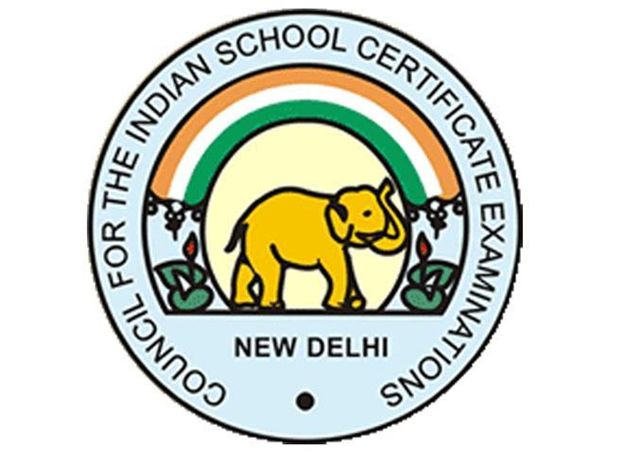📘 Introduction: What is CISCE?
The Council for the Indian School Certificate Examinations (CISCE) is one of the most prestigious private education boards in India. Known for its student-centric approach, in-depth syllabus, and focus on language and arts, CISCE has been the launchpad for millions of successful lives across India and abroad.
- 📘 Introduction: What is CISCE?
- 🕰️ History of CISCE – A Legacy of Independence and Excellence
- 📊 Quick Facts about CISCE
- 📅 CISCE Timeline – Evolution Over the Years
- 📖 Exams Conducted by CISCE
- 🧠 Unique Strengths of the CISCE Board
- 1. 🗣️ Language Mastery
- 2. 🎨 Creativity and Expression
- 3. 📚 Depth Over Breadth
- 4. 👩🔬 Balanced Science and Arts
- 5. 🎓 Project Work
- 🙋♀️ FAQs About CISCE
- ❓Is CISCE tougher than CBSE or State Boards?
- ❓Is the ICSE Board recognized internationally?
- ❓Is Hindi compulsory in CISCE?
- ❓Does CISCE follow the National Education Policy (NEP)?
- 🎯 7 Powerful Reasons Why CISCE Wins Hearts
- 1. ❤️ Holistic Learning
- 2. 🏫 Quality over Quantity
- 3. 🌐 Global Edge
- 4. 🎭 Creative & Cultural Development
- 5. 📈 Strong Academic Base
- 6. 🤝 Encourages Equality
- 7. 🎓 Life Skills Oriented
- 🌟 Significance of CISCE in the Indian Education Landscape
- 🌈 Wishing CISCE Students and Educators
- 🧬 Impact of CISCE in Daily Life
- 🏛️ Importance to Society
- 🧾 Conclusion – Why CISCE Deserves Attention
- 🚀 Final Thought
With exams like ICSE (Class 10) and ISC (Class 12) under its wing, CISCE blends academic rigor with creative freedom, producing students who are not just scholars, but thinkers, artists, leaders, and innovators.
This in-depth guide explores the history, structure, facts, and significance of the CISCE board—and how it quietly but strongly shapes the heartbeat of Indian education.
🕰️ History of CISCE – A Legacy of Independence and Excellence
1958: The University of Cambridge Local Examinations Syndicate (UCLES) suggested the establishment of an Indian Board.
1958: The Council for the Indian School Certificate Examinations (CISCE) was set up with the assistance of UCLES and the Inter-State Board for Anglo-Indian Education.
1973: CISCE was recognized as a non-governmental board of school education in India under the Delhi School Education Act.
Till Date: CISCE remains autonomous, meaning it is not run by the central or state governments but is recognized by them for public examinations.
Its independence is its strength—allowing it to maintain academic freedom, educational richness, and global benchmarking.
📊 Quick Facts about CISCE
| Feature | Details |
|---|---|
| Type | Private National Board |
| Founded | 1958 |
| Examinations Conducted | ICSE (10th), ISC (12th), CVE (Vocational) |
| Total Schools (2024) | Over 2,700 schools in India & abroad |
| Medium | English only |
| Recognition | Nationally and internationally |
| Curriculum Focus | Language, Science, Humanities, Arts, Technical Subjects |
| Specialties | Literature, creative writing, analytical skills, projects-based learning |
📅 CISCE Timeline – Evolution Over the Years
| Year | Event |
|---|---|
| 1958 | CISCE established with UCLES guidance |
| 1973 | Recognized under the Delhi School Education Act |
| 1986 | Gained momentum during India’s educational reform under the NPE |
| 2006 | Revised ICSE syllabus to include skill-based learning |
| 2015 | Introduced internal assessments and project-based formats |
| 2020–2023 | Digitized platforms and integrated NEP-based changes |
| 2025 | Strengthened creative, analytical, and life skill-based syllabus |
📖 Exams Conducted by CISCE
ICSE (Class 10) – Indian Certificate of Secondary Education
Balanced between science, arts, language, and social sciences.
Known for English proficiency focus.
ISC (Class 12) – Indian School Certificate
Offers specialization in Science, Commerce, Humanities.
In-depth and globally respected.
CVE – Certificate of Vocational Education
Practical and skill-based vocational stream.
🧠 Unique Strengths of the CISCE Board
1. 🗣️ Language Mastery
English is compulsory and deeply emphasized, creating fluent speakers and writers.
Literature study is intensive, developing critical thinking and expression.
2. 🎨 Creativity and Expression
Emphasis on creative writing, drama, and art.
Internal assessments encourage original thought.
3. 📚 Depth Over Breadth
Syllabus dives deeper into fewer topics, unlike CBSE which touches many lightly.
4. 👩🔬 Balanced Science and Arts
Equal weight given to science, humanities, languages, and arts.
5. 🎓 Project Work
Projects, internal assessments, and fieldwork are mandatory, fostering research and practical skills.
🙋♀️ FAQs About CISCE
❓Is CISCE tougher than CBSE or State Boards?
Yes, many believe CISCE is academically rigorous due to language fluency, depth of subjects, and analytical learning.
❓Is the ICSE Board recognized internationally?
Absolutely. ICSE and ISC results are accepted by top universities across the globe, especially in the UK, USA, Canada, and Australia.
❓Is Hindi compulsory in CISCE?
Hindi or another Indian language is compulsory, but English remains the medium of instruction and examination.
❓Does CISCE follow the National Education Policy (NEP)?
Yes. The board has aligned its pedagogy with NEP 2020 including skill-based learning and experiential assessments.
🎯 7 Powerful Reasons Why CISCE Wins Hearts
1. ❤️ Holistic Learning
Students don’t just study to score—they learn to understand, express, and apply.
2. 🏫 Quality over Quantity
Fewer schools under the board means better control over quality education and evaluation.
3. 🌐 Global Edge
Students are fluent in English and perform better in global language and entrance tests.
4. 🎭 Creative & Cultural Development
Dance, music, drama, art are part of the curriculum—not just optional extras.
5. 📈 Strong Academic Base
Ideal for those planning careers in arts, law, literature, business, and civil services.
6. 🤝 Encourages Equality
CISCE’s internal assessments ensure fair marks based on performance, not just one-time exams.
7. 🎓 Life Skills Oriented
From teamwork to presentations and time management, CISCE preps students for real-world scenarios.
🌟 Significance of CISCE in the Indian Education Landscape
Gives Academic Freedom: Allows schools to choose methods and focus areas.
Balances Tradition & Modernity: Teaches Indian values while training for global citizenship.
Empowers Teachers: Teacher creativity is encouraged with less rigidity.
Encourages Liberal Arts Education: Prepares students for dynamic careers.
🌈 Wishing CISCE Students and Educators
💐 To every CISCE student – you’re part of an education system that values not just scores, but stories, ideas, imagination, and impact. Let your voice be heard, your ideas grow, and your life blossom with creativity and courage.
👏 To every educator – thank you for shaping minds that are independent, inquisitive, and inclusive. CISCE’s legacy continues through your guidance.
🧬 Impact of CISCE in Daily Life
Students become confident communicators and thinkers.
Strong grounding in presentation, writing, and interpretation.
Prepares students to excel in national and international interviews, debates, and exams.
Life-long impact on language, personality, and ethical decision-making.
🏛️ Importance to Society
Raises Educational Standards in urban and semi-urban areas.
Provides an international platform to Indian talent.
Reduces exam stress through balanced assessments.
Produces future-ready citizens with values, creativity, and skills.
🧾 Conclusion – Why CISCE Deserves Attention
The CISCE board is more than just a curriculum. It is an experience that celebrates the student as a whole—not just as a test-taker, but as a learner, artist, speaker, and citizen.
Its strength lies in:
Depth of education
Freedom of thought
Excellence in language
Love for the arts
Respect for values
Whether you are looking to build a career in engineering or English literature, economics or education, CISCE lays the foundation for success that is authentic, powerful, and joyful.
🚀 Final Thought
📌 In a world of fast-paced learning, CISCE remains a beacon of quality, character, and creativity. It’s not just a board – it’s a life-shaping journey.








